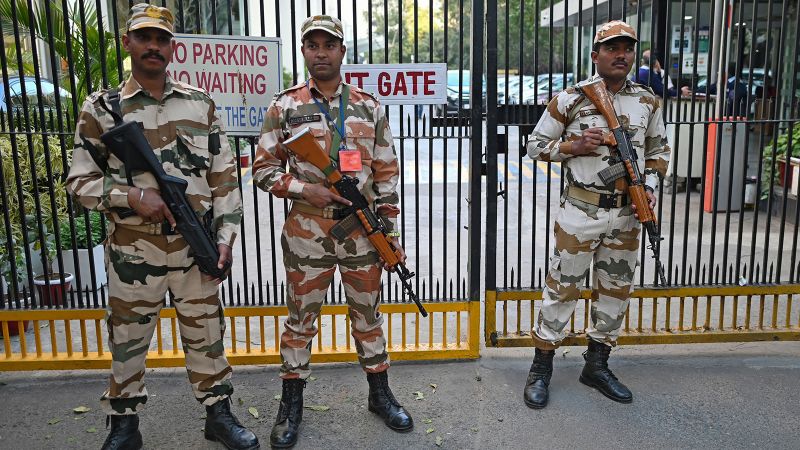Journalist Siddique Kappan has been avoiding controversial stories after his experience covering a shocking rape-and-murder case landed him in jail for over two years. He blames his incarceration on the worsening climate for journalists in India, where arrests and harassment are becoming more common. Under Prime Minister Narendra Modi’s rule, many journalists feel squeezed out of their industry, with accusations of suppressing media pluralism and using anti-terror legislation against reporters.
In 2020, while working as a freelancer, Kappan was arrested on his way to report on a gang rape and killing of a Dalit teenager in Uttar Pradesh. He was charged under anti-terror and money laundering laws, spending 28 months in jail. His case is still ongoing, despite being granted bail by the Supreme Court. The Uttar Pradesh government, led by Modi’s BJP, opposed his bail, accusing him of spreading communal tensions and inciting religious discord.
The treatment of journalists like Kappan has struck fear into many other reporters, leading to self-censorship and avoidance of controversial stories. Critics argue that India’s media industry has become increasingly subservient to the government over the past decade. Press freedom rankings have dropped significantly, with instances of imprisonment and the use of anti-terror laws against journalists on the rise. The Indian government has defended its actions, stating that journalists are not above the law.
Notable journalists, like Ravish Kumar, have faced harassment and threats for being critical of the government. Kumar chose to resign from NDTV and start his own YouTube channel due to pressure to toe the government line. Critics argue that TV news has become dominated by pro-government voices, with little room for dissenting opinions. The erosion of media pluralism in India has raised concerns about the future of press freedom in the country.
International reporters have also faced obstacles, with the government cracking down on foreign correspondents perceived as critical. Australian and French journalists have left the country due to visa denials and accusations of biased reporting. The BBC’s offices in India were raided by tax authorities following the airing of a critical documentary about Modi, highlighting the challenges faced by foreign media in the country. Despite the obstacles, journalists like Kappan remain committed to advocating for journalism and the pursuit of truth in India.













